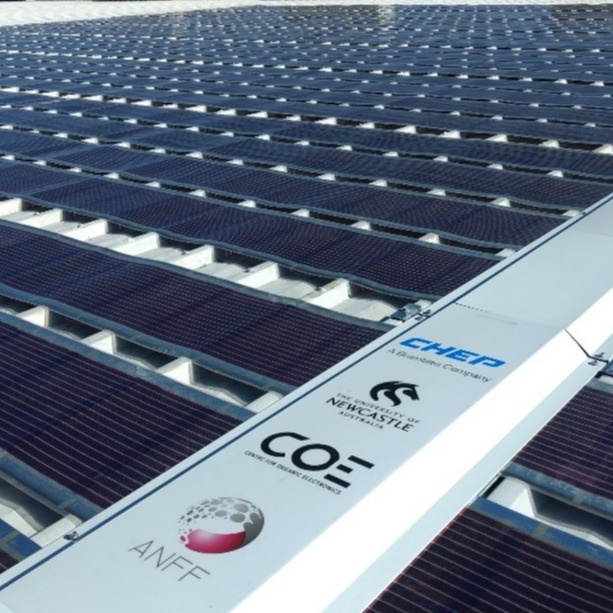Developing a Technical Framework for Testing Printed Solar Technology
PhD Scholarship
Help shape the future of solar energy. This iPhD project will develop a new technical framework for testing printed solar technologies—an emerging class of ultra-lightweight, flexible photovoltaics. Current international standards were designed for traditional, rigid panels and don't adequately address the unique characteristics of printed solar. Your research will fill this gap, leading to new testing methods that could accelerate the commercial adoption of printed solar and enable its use on structures that can’t support conventional panels. This is an exciting opportunity to contribute to the next generation of clean energy technologies with real-world impact.

All significant national markets for solar photovoltaics mandate that installed solar modules (panels) are certified to meet two key international standards, IEC 61215 for quality and IEC 61730 for safety. IEC 61215 describes a series of stress-tests designed to ensure solar panels can survive for 25 years in the field (despite most of them usually being upgraded every 8-10 years).
Printed solar panels are different to conventional silicon solar panels. They are manufactured at much lower cost and designed for a lifetime of only 4-5 years before being replaced and recycled. As such, for printed solar some of the IEC stress tests are unnecessarily harsh and not relevant. Further, the tests are designed to identify known degradation pathways in conventional silicon solar panels and at present there are no IEC stress tests that appropriately reflect the degradation mechanisms of printed solar devices.
This project will develop the urgently required new IEC standards relevant to the performance and lifetime of printed solar technology through developing a detailed understanding of printed solar degradation mechanisms and interactions with testing methods. The outcome will be the creation of a testing framework to enable regulatory approval of printed solar for commercial manufacture.
PhD Scholarship details
Funding: A four-year scholarship package of $47,000 per annum stipend (2025 rate) a four-year Project Expense and Development package of approximately $13,000 per annum a 60-day Industry Engagement component provided by the industry partner a professional development training program. A tuition fee scholarship for four years. Scholarships also include up to $1,500 relocation allowance.
Supervisor: Prof Paul Dastoor
Available to: Domestic students
PhD
Eligibility Criteria
The student will have a Bachelor's degree in science (ideally physics) or engineering (ideally electrical), plus a strong aptitude for technology and a desire to become a researcher. Previous experience or exposure to solar photovoltaics research will be an advantage.
The applicant will need to meet the minimum eligibility criteria for admission.
Application Procedure
Interested applicants should send an email expressing their interest along with scanned copies of their academic transcripts, CV, a brief statement of their research interests and a proposal that specifically links them to the research project.
Applications Close 30 September 2025 Apply Now
| Contact | Prof Paul Dastoor |
|---|---|
| Phone | +61 2 4921 5426 |
| Paul.Dastoor@newcastle.edu.au |
PhD and Research MastersFind out more
The University of Newcastle acknowledges the traditional custodians of the lands within our footprint areas: Awabakal, Darkinjung, Biripai, Worimi, Wonnarua, and Eora Nations. We also pay respect to the wisdom of our Elders past and present.